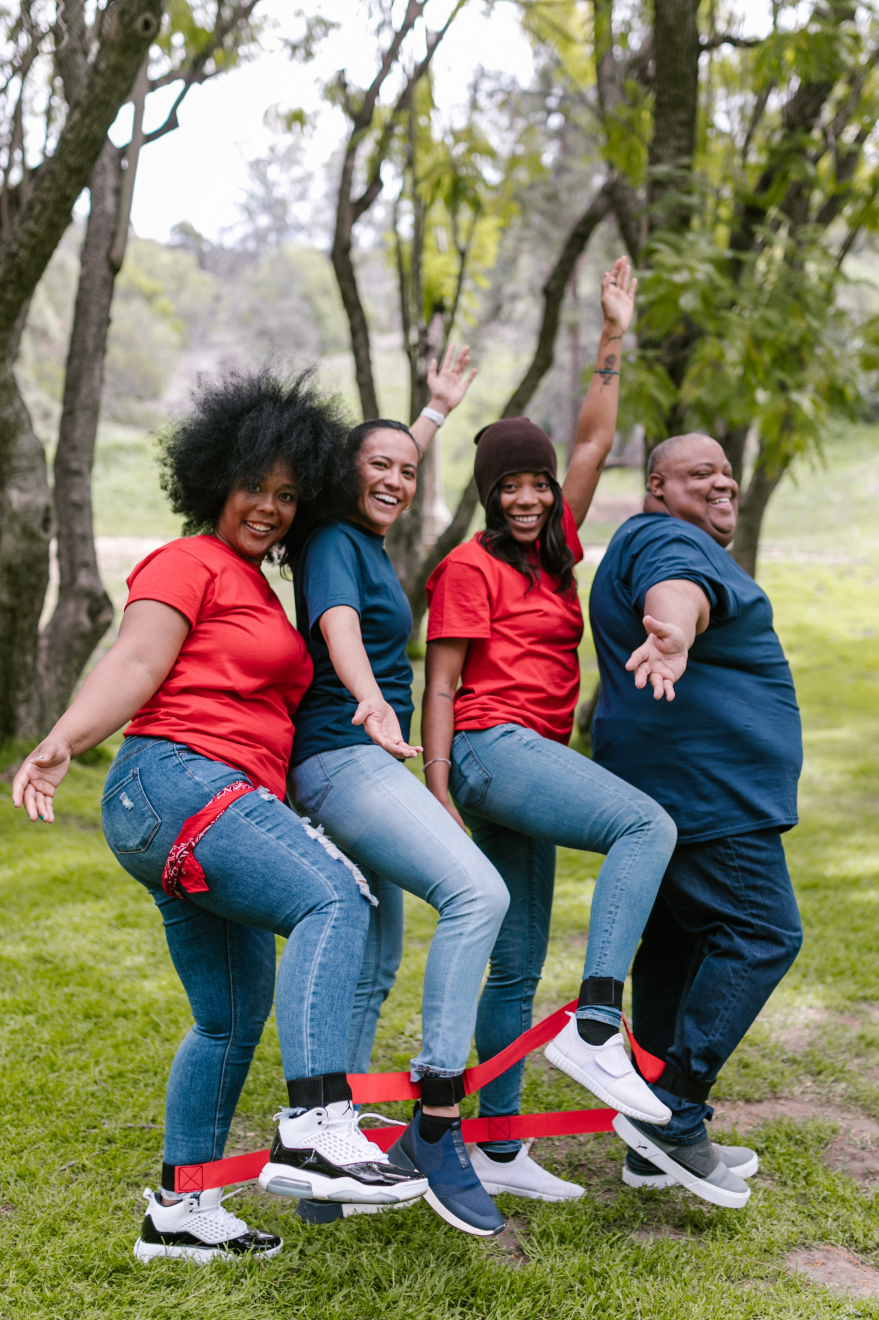|
Volume 1, Issue 5
On a Personal Note
Dear MELISSA,
"Everything has to be moved from the house by Saturday," my sister informed me.
Well, I can't say my life is boring at this time.
What was suppose to be just a brief stay, allowing me time to look for a house, hasn't work out as planned (as you know, if you've been following my newsletter).
In fact, nothing has gone as planned.
I am now in the midst of my sister's planned, temporary move that is required for extensive repairs and remodeling of her home.
Fortunately for me, she and her family are able and willing to include me in the move. I am most blessed. Certainly, my gratitude is more than I can express.
Such a change, of course, comes at a price to all involved.
Lots of adapting for everyone. For my family, it means decreasing their privacy, accommodating another person and giving up precious space to do so.
For me, it means having people around all the time after living alone for more than 20 years.
As an introvert who yearned for more living space, I went from 1200 sqft for me alone to 1300 sqft shared by 5 adults (two of us working from home), a Labrador retriever and a cat who is clearly suffering from cabin fever.
Heck, I didn't have this many roommates as a college student.
I'm quite certain God is chuckling with glee over this situation that is intended to teach me plenty. I can only hope I learn the lessons the first time around.
For this situation to function well, it has meant collaborating every step of the way.
From sharing the bathroom with two others (and remembering to lock the door upon entering) to doing laundry, from managing car rides to coordinating multiple schedules, from preparing meals to cleaning up afterward... requires teamwork.
Without the ability to pull together, relationships of all kinds become disconnected and struggle to survive as stress accrues over time.
In fact, many relationships have failed due to forgetting the necessity of working together, especially through trying times.
So let's take a look at the importance of teamwork in strengthening relationships and reducing overwhelm, especially during times of extreme challenge.
Blessings of a life well lived,
Melissa
Close Encounters of the Teamwork Kind

If you want to lift yourself up, lift up someone else. ~ Booker T. Washington
Teamwork: The Big Picture
So what exactly is teamwork? Why should you care?
In general, teamwork involves a group of people working together to achieve a common purpose. 
Teamwork is such a simple word for a complex concept entailing many skills, especially when considering the nuances of personal relationships.
Some skills involved in teamwork include (but are not limited to): collaboration, cooperation, effective communication, accountability, responsibility, a sense of humor, tolerance for differences, patience, sharing burdens, humility, conflict resolution, commitment, and mutual support.
Yikes, so many skills. But what does this really mean? How does this look in life?
Teamwork comes down to joining our efforts to look out for each other. No longer are you thinking “What’s in it for me?” Instead, you’re thinking “What does this mean for us?"
While most people think of sports, the military and work environments when speaking of teamwork, in truth all relationships require some degree of pulling together to be effective and endure in the long run.
You could say teamwork is even more essential in personal relationships than other partnerships. Partners and families are a lifetime commitment, while other groups have a time limit (i.e., retirement, project, new team, etc.).
Teamwork is picking up the slack when you notice others are struggling to keep up and you have the time and energy to help.
It's also asking for help when you need it, which may call for renegotiating the distribution of responsibilities.
Situations may require a temporary change or a long term change. This process, however, is not to be used as a way to get out of your share of the work, but to allow flexibility when circumstances change.
Joining forces also allows us to recognize when another is having a bad day. By not taking their behavior personally, you are able to provide space until they are either ready to talk or they work through it on their own.
Now this does not mean accepting bad behaviors, especially repeated poor behavior. Holding each other accountable is essential to effective teamwork.
Just be certain it is poor behavior versus unliked behavior. For instance ladies, if he routinely leaves the toilet seat up, simply put it down when you notice it up.
No amount of reminding, haggling or complaining is going to change this. Can you instead be glad the toilet seat is clean?
Instead of trying to force change, look for solutions to accommodate differences. Let's say, you each squeeze the toothpaste tube differently and you find this irritating, then make sure you each have your own tube.
The more you can find ways to resolve the small stuff, the more you are able to join together on the bigger, more important issues, such as finances, schedules, accidents, emergencies, house keeping, child rearing, and the likes.
When you don't feel like you are being nagged about every little thing, there tends to be more willingness to work together and receive honest feedback knowing it is said out of mutual respect.
By picking your battles, you'll have fewer fights; and thus, you are able to enjoy spending time together again.
Another important part of teamwork is playing to the strengths of each other. If he likes to cook and you like to clean, divide the chores accordingly when this works. Be sure to adjust when situations don't allow for such clear divisions.
 And don't just share in the work, responsibilities and hard times. Remember to share the celebrations. And don't just share in the work, responsibilities and hard times. Remember to share the celebrations.
Make time to play and have fun together. These good times reinforce bonding, so that you don't forget you care about each other.
Planning activities together, preparing meals together, eating it together, and then cleaning up the mess together, reinforces your connectivity.
In summary, without teamwork, overwhelm is imminent and soon followed by resentment. Joining forces is about sharing the burden so we are able to get more done with less effort.
If you remember nothing else, remember these two major points when pulling together:
1) The small stuff you do for each other matters and 2) communicating your appreciation for these things done (whether verbally or through actions) will strengthen relationships to withstand the most challenging of times.
Emphasis on Communication
Communication is a topic for volumes of books because it is just that important and that challenging. Miscommunication occurs so easily.
When you consider that language is culturally based and each person is his own culture (a accumulation of all of ones experiences in life), it's a wonder that people manage to communicate at all.
Patterns of ineffective communication break down trust, which is one of biggest issues that contribute to families/relationships falling apart.
Relationships erode over time (not overnight) and this generally starts when communication is poor or nonexistent.
Effective communication involves open, honest expression that is voiced tactfully so the other does not feel attacked.
Being mindful of your tone and picking an optimal time to talk increases the likelihood for understanding to be achieved.
Active listening is vital as well. Just because you can repeat what the person said word for word, does not mean you necessarily understood what they were saying.
Hearing is not the same as listening. As it has been said, God gave us two ears and one mouth because listening is twice as important as speaking.
Listening cannot be rushed. Allow the person time to say what they have to say. Don't try to finish their thoughts for them.
Don't listen to respond either. Instead, let your response show that you are with them and are doing your best to understand and support them.
Responses should reflect that you are checking in to make sure you understand or are seeking clarification about something said.
Finally, listening does not communicate that you agree with someone, but rather that you value them, their feelings, thoughts, and issues.
The more you communicate with each other, the better your teamwork and relationship.
Skills and Traits of Teamwork
Numerous skills and traits are essential to effective teamwork. Where are your strengths? Which might you need to improve on?
- Collaboration
- Communication
- Active listening
- Mutual respect
- Tolerance for differences
- Humility
- Commitment
- Mutual support
- Encouragement
- Reliability
- Flexibility
|
- Accountability
- Responsibility
- A sense of humor
- Patience
- Conflict resolution
- Negotiation
- Give and take
- Compromise
- Focus on us, not me
- Dependability
- Caring
|
Benefits of Teamwork
Plain and simple, we are stronger when we join forces.
- Reinforces relationships
- Work done faster
- Members learn from each other
- Burdens are shared
- Decreases overwhelm
-
Reinforces confidence
- Recognizes strengths of members
|
- More can be achieved together
- Improves communication
- More fun
- Builds trust
- Mutual support
- Happier
- Better health
|
If you want to go fast, go alone. If you want to go far, go together. ~ African Proverb
Cool Resource
Does it feel like no one is listening to each other or even trying to work together? Been awhile since you've felt connected? No doubt, it is difficult to join efforts if communication is not effective. Check out these silly activities I found online. They may open the door to feeling safe to share openly again. Use the games for a date night or family night.
Follow My Instructions!
Good communication involves both talking and listening. This activity is relatively simple. Choose one member of your family to be the instructor and then rotate until each person has had a chance to give instructions.
The instructor will choose an activity that the rest of the group must do with their eyes closed or blindfolded, such as folding a piece of paper. The instructor gives each family member a piece of paper. With their eyes closed, they listen for instructions on folding the paper (fold in half, fold diagonally, fold the right edge, etc.).
Give at least seven different instructions. When done, tell everyone to open their eyes and look at their creations. Everyone will have different results- showing you that each person perceives instructions differently.
What Would You Do?
In this fun communication skill-building game, you can get to know your family members better by learning how they react in different situations. Before the game, create a list of questions about different scenarios. One example is, "What would you do if someone bumps into you at the grocery store but does not apologize?" Or, "What would you do if you caught your best friend talking about you behind your back?"
This gives you a chance to work on skills like assertiveness versus aggressiveness.
Three Truths and a Lie
Sitting in a circle, each family member takes turns, telling the group 4 things about themselves. Three of those self-descriptions will be true; one will be a lie. The other family members will have to guess which is the lie and which are truths.
This simple activity lets you practice communicating information about yourself and getting to know each other on a deeper level.
But don't get caught up in whether you complete the games successfully or not. It's really about working together as a team, having fun and increasing the amount of time you spend with each other.
Communication with the people who are important to you can improve in a short time, and you will notice closer, more meaningful bonds.
https://www.chrismassmanmft.com/news/7-family-communication-exercises-to-try-at-home
* If you find you are struggling with overwhelm and chaos at work and/or home, book a complimentary Eliminate Chaos Strategy Session by clicking on the left link.
Upcoming Events
Watch in your email for the invitations to join my weekly guided meditations provided via Zoom. If you are unable to attend the meditations live, the meditations are also recorded.
Aug 9, 2021 01:00 PM
Aug 16, 2021 01:00 PM
Aug 23, 2021 01:00 PM
Aug 30, 2021 01:00 PM
Sep 6, 2021 01:00 PM
Sep 13, 2021 01:00 PM
Connect With Me
I would love to hear how this newsletter has been helpful to you. Please feel free to respond with your comments or any questions you may have. Also let me know if there is a topic you like more information on in future issues.
Visit our website and social media for more resources and information:
Facebook: https://www.facebook.com/MelissaFairchild.LCSW
Website: https://melissafairchild.coachesconsole.com/
LinkedIn: https://www.linkedin.com/in/melissa-fairchild-lcsw-525b9828/
Free Report: https://melissafairchild.coachesconsole.com/

Don't Keep Us a Secret!
If you enjoy receiving our newsletter, then you know the exceptional value and care we put into every issue. If you know anyone who can benefit from this powerful resource, please don’t hesitate to forward the email to the important people in your life. We promise to take good care of them.
Our Vision: To help one million individuals and families to develop more love, joy, peace and happiness through living their best lives.
Why We Do What We Do...
"Reclaim Your Life" is about learning to live fully, instead of surviving from one crisis to the next. It’s about making room for life, which is meant to be lived joyfully. We don’t push pipe dreams. We guide and support you through this simple, yet powerful, process to building a peaceful, resilient life one step at a time.
|